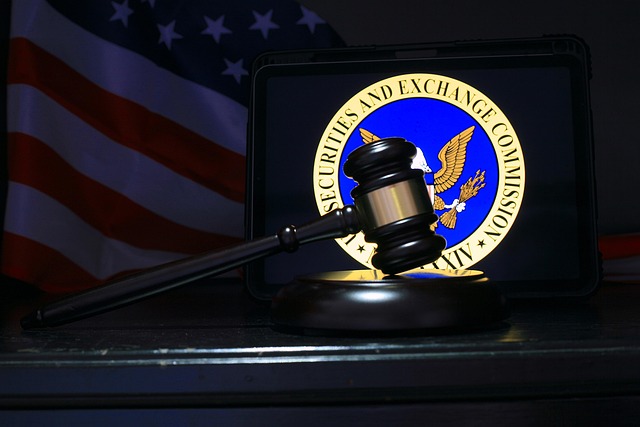In the legal sector, confidentiality is paramount, making robust data protection a stringent necessity. Law offices must invest in advanced equipment like secure computers, servers, firewalls, and multi-factor authentication software to safeguard client details. Physical infrastructure, including fireproof safes and locked cabinets, coupled with staff training on security protocols, ensures compliance and maintains the office's commitment to integrity and security. Regular backups and encryption for all confidential materials further protect client privacy and streamline efficient data handling practices in today's digital era.
In today’s digital age, securing confidential client data is paramount for law offices. This article explores the essential tools and best practices that every law firm should implement to safeguard sensitive information. From robust hardware solutions to advanced software applications, we delve into must-have law office equipment designed to protect privacy and mitigate risks. By understanding these critical components, legal professionals can ensure data integrity and maintain client trust.
- Understanding the Significance of Data Security in Law Offices
- Essential Hardware for Protecting Confidential Information
- Software Solutions to Safeguard Client Data
- Best Practices for Handling and Storing Sensitive Materials
Understanding the Significance of Data Security in Law Offices
In the legal field, where trust and integrity are paramount, ensuring data security is non-negotiable. Law offices handle highly sensitive client information, making data protection a top priority. A breach in security can lead to severe consequences, including ethical violations, financial losses, and irreparable damage to client relationships. With digital transformation increasingly prevalent in law practices, the need for robust security measures has never been more critical. The right law office equipment, designed with advanced encryption, access controls, and secure data storage, is essential to safeguard confidential client records.
By investing in top-tier security technology, law offices can mitigate risks associated with data breaches and ensure compliance with legal and ethical standards. This includes employing robust firewalls, implementing multi-factor authentication protocols, and regularly updating software to patch vulnerabilities. Additionally, training staff on secure data handling practices is crucial to fostering a culture of awareness and responsibility in managing confidential client data.
Essential Hardware for Protecting Confidential Information
When it comes to handling confidential client data, a law office’s physical infrastructure plays a critical role in ensuring security. Essential hardware for protecting such sensitive information includes secure computers and servers equipped with robust antivirus software and encryption tools. These devices should be part of a reliable network protected by firewalls, virtual private networks (VPNs), and regular system updates to mitigate potential cyber threats.
Furthermore, law offices must invest in high-quality locking systems for physical documents and storage spaces. Fireproof safes, locked filing cabinets, and secure document shredders are indispensable pieces of law office equipment. These measures ensure that confidential papers are not only digital but also physical are kept under strict control, limiting access to authorized personnel only.
Software Solutions to Safeguard Client Data
In today’s digital age, law offices handle vast amounts of confidential client data, making the implementation of robust software solutions crucial. These tools are designed to safeguard sensitive information by encrypting data at rest and in transit, ensuring only authorized access through multi-factor authentication. Advanced encryption algorithms and secure communication protocols are essential features that protect client details from unauthorized parties.
Beyond encryption, modern software solutions offer comprehensive data management capabilities, including role-based access controls and audit trails. These measures enable law offices to monitor who accesses what data and when, providing a transparent record for compliance purposes. Integrating such technology into law office equipment is a game-changer, enhancing security while streamlining workflows and promoting efficient client data handling practices.
Best Practices for Handling and Storing Sensitive Materials
When it comes to handling and storing sensitive client data, especially within a law office, adherence to best practices is non-negotiable. Firstly, ensure all employees are trained in data security protocols. This includes proper access control measures, such as unique user credentials for each staff member, and regular updates to prevent unauthorized access. Sensitive materials should be stored in secure locations, using specialized law office equipment like fireproof safes or locked cabinets, especially when not in use.
Implementing robust encryption methods for digital data is also crucial. All documents, emails, and databases containing client information must be encrypted to protect against cyber threats. Additionally, regular backups of these records should be made, both digitally and physically, to ensure data recovery in case of loss or damage. These practices not only safeguard confidential client data but also reflect professionally responsible management, enhancing the law office’s reputation for integrity and security.
In the legal sector, maintaining client confidentiality is paramount. By investing in robust hardware and software solutions, law offices can ensure data security, safeguard sensitive information, and comply with legal requirements. Adhering to best practices for handling and storing confidential materials further fortifies these measures, creating a secure environment for client data. Armed with these essential tools, law office equipment plays a pivotal role in upholding the integrity and privacy of information entrusted to them.
